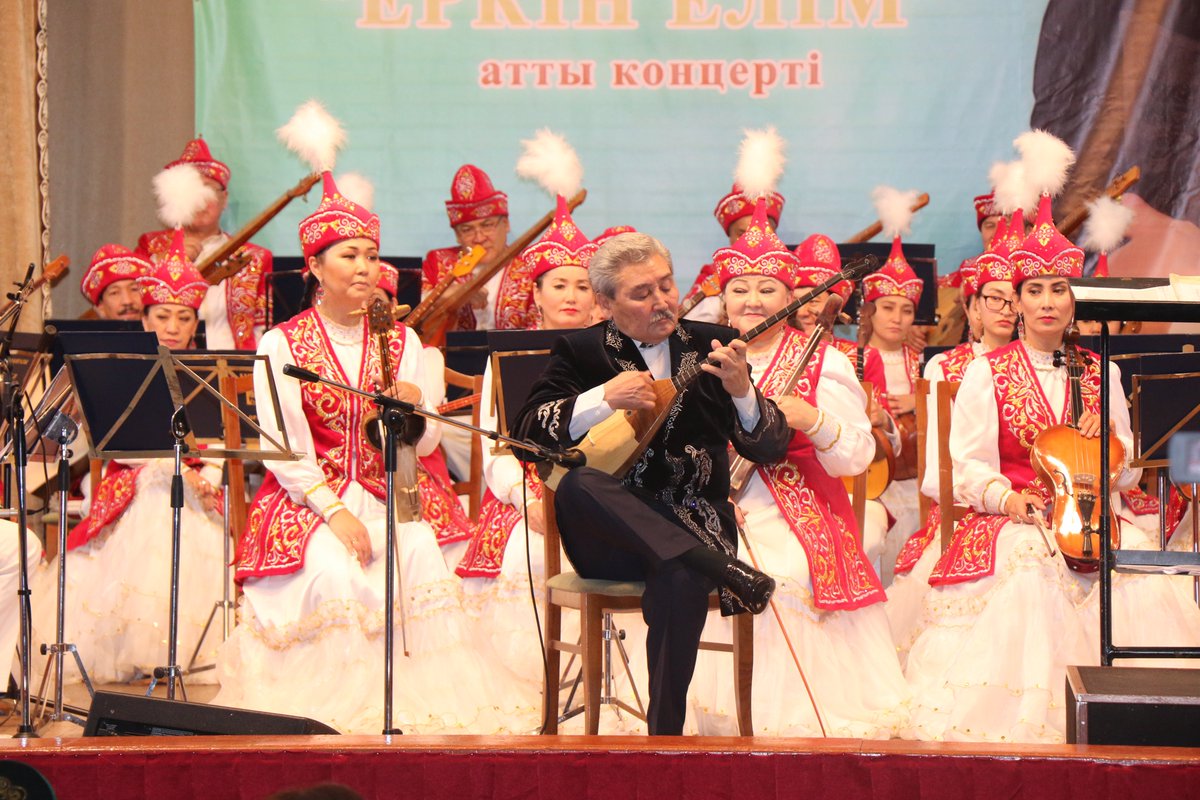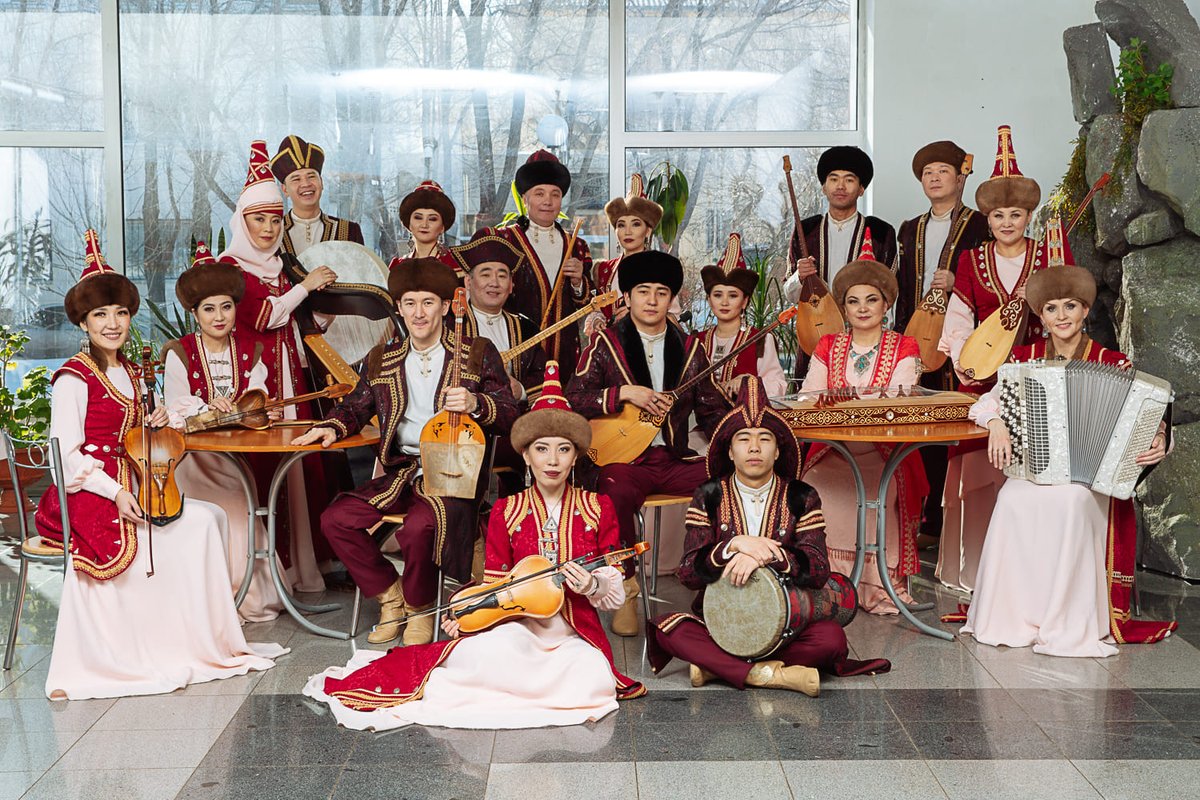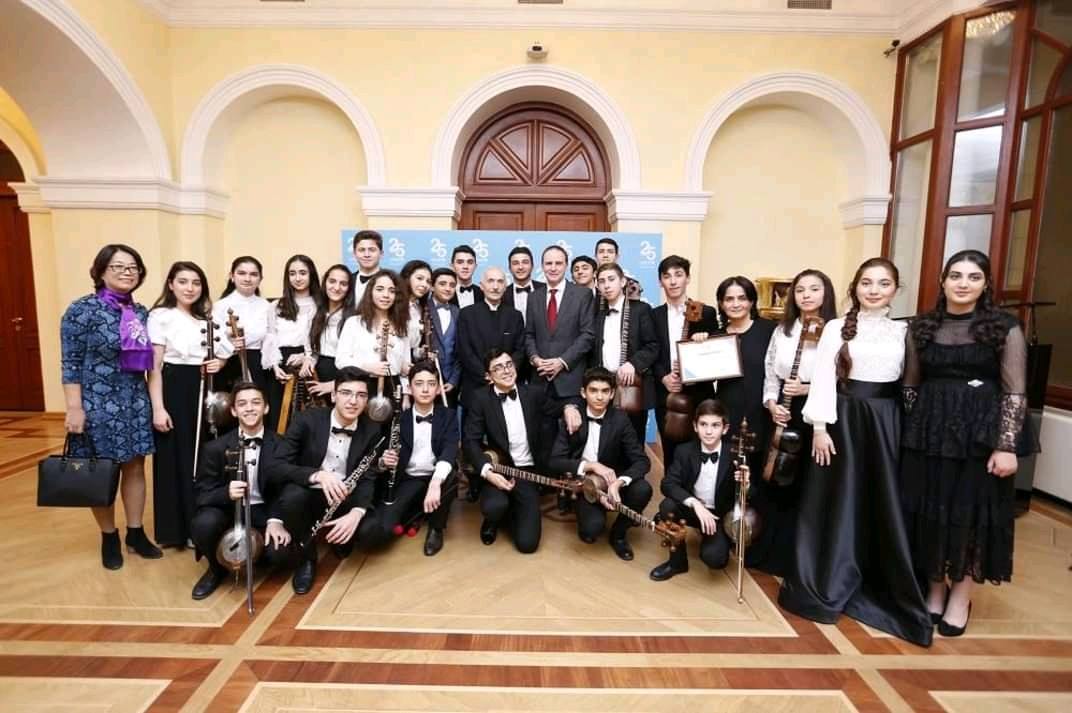
I'm so glad there are videos of Dina Nurpeisova (1861-1955) in existence. Some of her music, and other dombra masters' compositions, are the foundation for Symphonic Quy--a nationalist genre for Kazahkstan Folk Instrument Orchestras. Here s her "Nawiski."
A more contemporary performance by Assel Alina during a Kurmangazy Orchestra concert. Folk orchestra concerts almost invariably alternate between full symphonic works, solo (unaccompanied and accompanied) works, and vocal pieces.
https://twitter.com/Silpayamanant/status/1222864264408584192
The 80+ piece Kurmangazy Orchestra is just 13 years shy of its 100th anniversary and it's one of almost a dozen symphonic folk orchestras in all the regions of Kazakhstan.
https://twitter.com/Silpayamanant/status/1327996400462860295
Looks like the Kurmangazy Orchestra website is back online (though the English translation of it is still down).
kurmangazy.com



kurmangazy.com




More about Kazakh Symphonic Kuy
"Kazakh Symphonic Kuy--The Counterintuitive Convergence of Traditions"
eric.ed.gov/?id=EJ1114881
"Kazakh Symphonic Kuy--The Counterintuitive Convergence of Traditions"
eric.ed.gov/?id=EJ1114881
It's easy to underestimate how Eurocentric Western PAO's are, cf. Kazakhstan's capital, Nur-Sultan's (pop. 1,136,008) resident PAO has 9 resident groups. 4 Classical, 4 Kazakh, 1 eclectic. philarmonic-astana.kz
(l-r/t-b: Kazakh Orc; Saryarka Ens; Korkyt Grp; Shalkyma Dance Ens)



(l-r/t-b: Kazakh Orc; Saryarka Ens; Korkyt Grp; Shalkyma Dance Ens)




And the composers on this program by the Naryn Orchestra, one of the 20 or so regional Kazakh Folk Orchestras also demonstrates how ethnically siloed classical music is. Don't think for a second it isn't like this in many other countries around the world.
turksoy.org/en/news/2019/0…
turksoy.org/en/news/2019/0…

• • •
Missing some Tweet in this thread? You can try to
force a refresh











